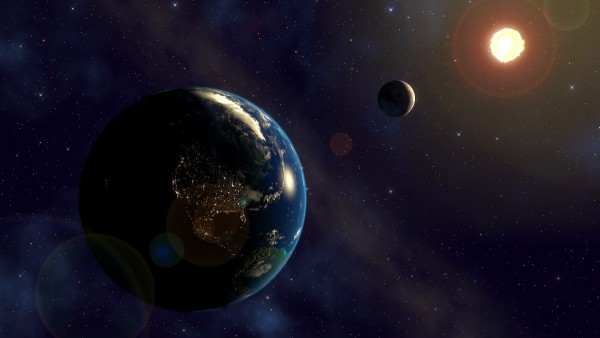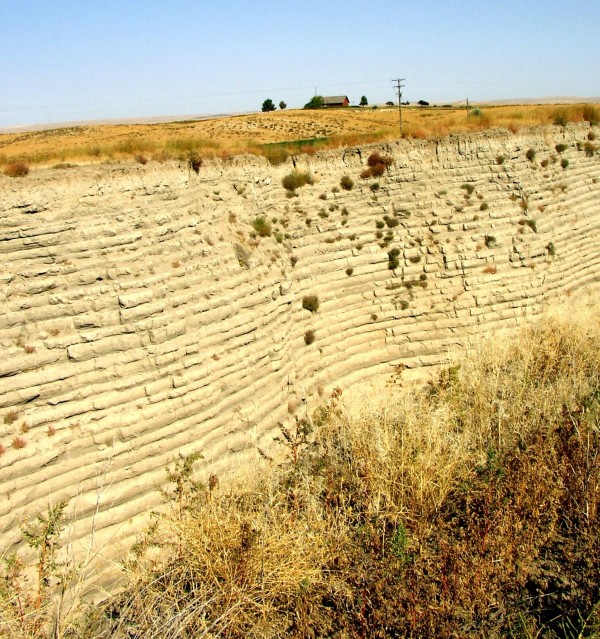"Will you or won't you? Should you or shouldn't you?
Use this day to do something daring, extraordinary and unlike yourself." -Vera Nazarian
The need for a February 29th, once every four years or so, doesn't just give us an extra day this year, but it keeps the calendar from drifting and failing to align with the seasons. Even so, the scheme we have worked out today -- where years divisible by 4 but not those divisible by 100 unless also divisible by 400 get an extra day -- isn't perfect, and will get worse as time goes on.
 Image credit: flickr user Kevin Gill, under c.c.a.-s.a.-2.0. A quick artistic view of the Earth, Moon, & Sun. Done in Blender 2.71/Cycles, touched up in Photoshop, of the Earth, Moon and Sun.
Image credit: flickr user Kevin Gill, under c.c.a.-s.a.-2.0. A quick artistic view of the Earth, Moon, & Sun. Done in Blender 2.71/Cycles, touched up in Photoshop, of the Earth, Moon and Sun.
The current misalignment between our calendar and the actual Earth's orbit is big enough that we'll be off by a day every 3,200 years, but bigger news is that the Earth's rotation rate is changing, as our day lengthens and our spin slows down. In another 4 million years, we won't need leap days at all, and if we extrapolate backwards, we can find that early Earth had a day that lasted just 6.5 hours.
Go get the whole story of Leap Day over on Forbes, and don't forget to celebrate by taking a chance!

